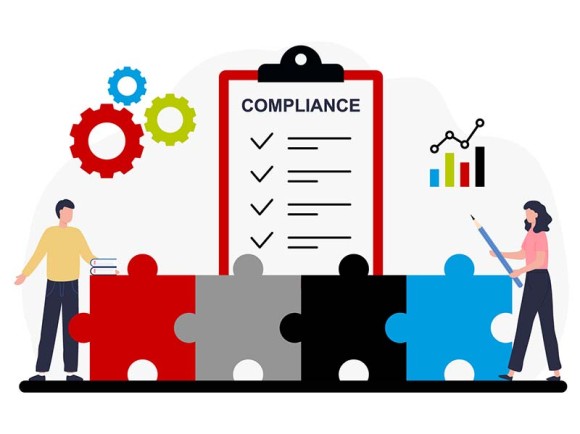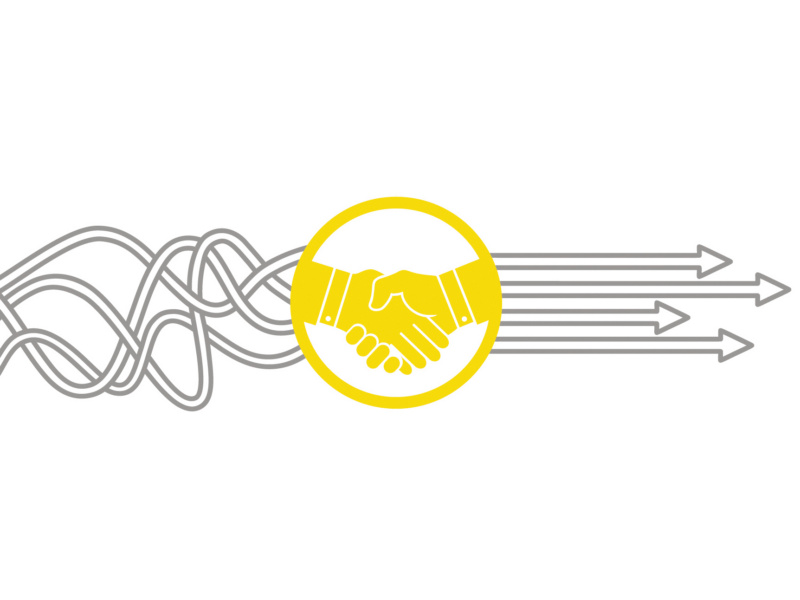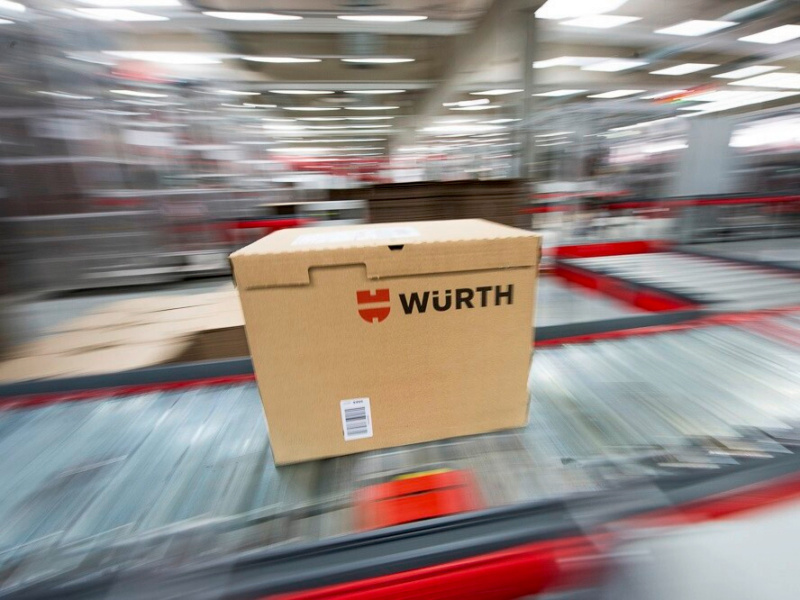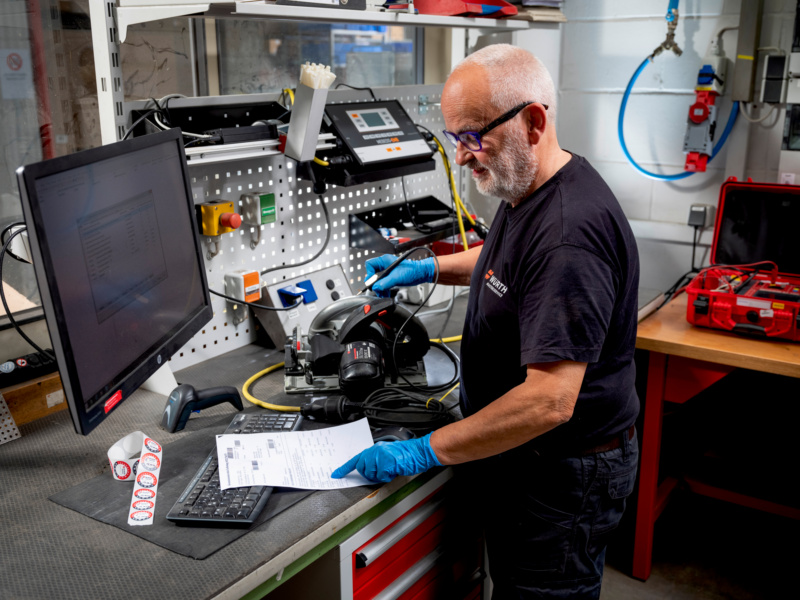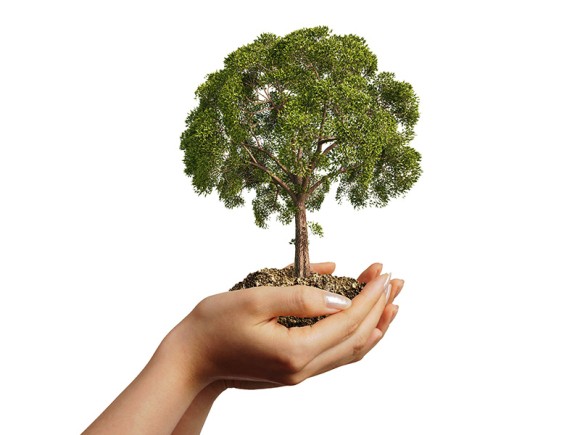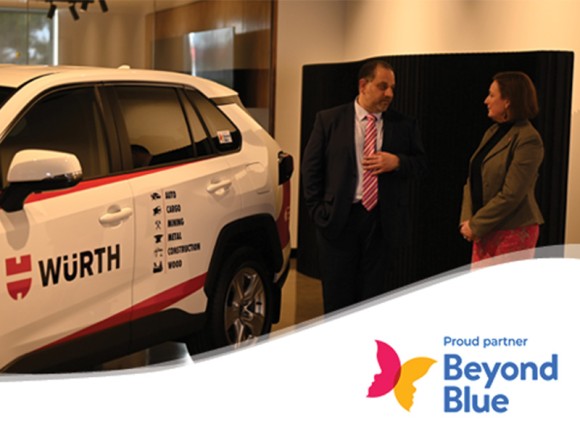
“Humanity has the ability to make development sustainable – to ensure that it meets the needs of the present without compromising the ability of future generations to meet their own needs.” World Commission on Environment and Development, 1987.
“Humanity has the ability to make development sustainable – to ensure that it meets the needs of the present without compromising the ability of future generations to meet their own needs.” World Commission on Environment and Development, 1987.
Sustainability at Wurth
The Three-Pillar Model of Sustainability
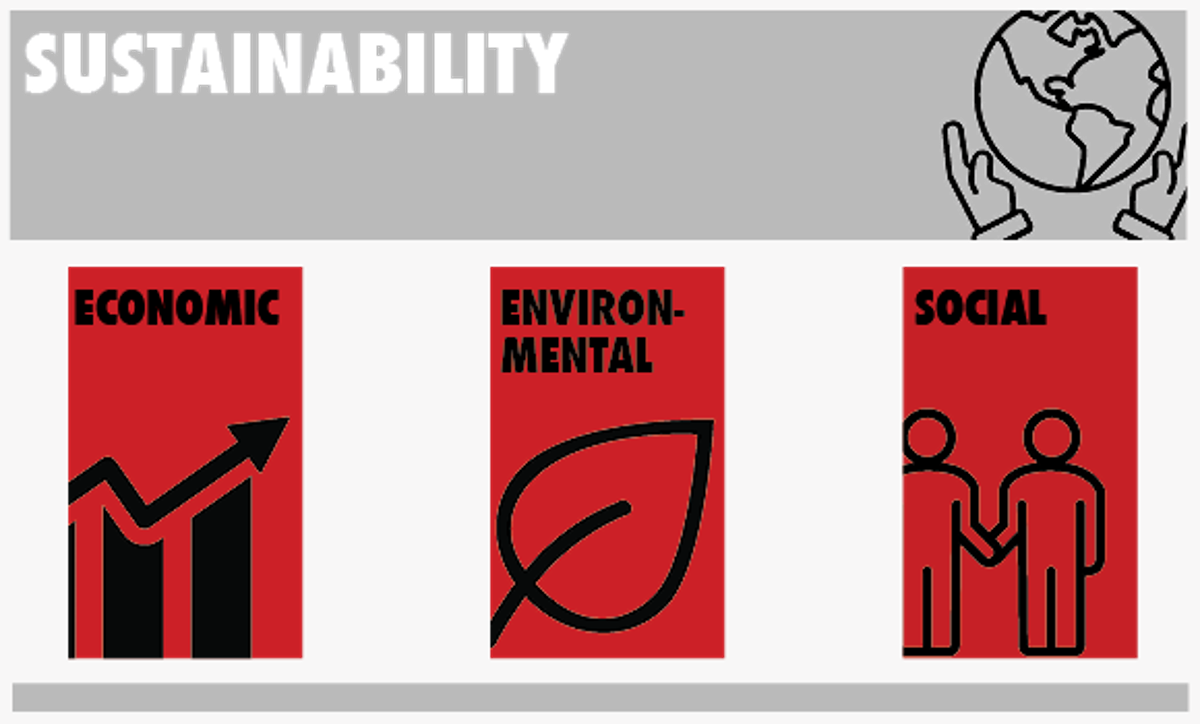
The connection of economic performance with environmental responsibility and social justice
At Wurth Australia, we follow the globally recognised three-pillar model of sustainability.
The model represents the connection of:
- Economic performance with
- Environmental responsibility and
- Social justice.
These three dimensions of sustainability are equally important.
Acknowledging their mutual dependency paves the way for a change of mindset from a linear economy to a circular economy.
With our Sustainability Policy we aim to make a clear commitment towards the three dimensions of sustainability.
Our Path to Climate Neutrality
In order to start our journey to become climate neutral, Wurth Australia have measured our direct and indirect emissions since 2020 in line with the international Greenhouse Gas Protocol It defines three scopes that emissions can be allocated to:
- Scope 1: This scope includes all emissions from sources owned or controlled by a company, e.g. from its own establishments or vehicle fleet.
- Scope 2: This scope covers all indirect emissions from the generation and provision of purchased or acquired energy services from third parties. These energy services include electricity, heating and air conditioning technology consumed by the reporting company.
- Scope 3: This scope comprises of indirect emissions that occur through a company’s operations, but cannot be controlled directly by this company. Scope 3 includes emissions that occur in both upstream and downstream operations such as transport and distribution, commuting and business trips.
The carbon-neutral objectives of Wurth Australia are based on direct emissions (scope 1) and indirect emissions (scope 2). While upstream and downstream emissions (scope 3) will be analysed and identified within the scope of the company’s carbon footprint analysis, they cannot be fully included in the company’s climate targets, as they cannot be influenced directly yet.
Sustainable Development Goals
Wurth Australia are committed to the 17 Sustainable Development Goals defined by the United Nations as part of their 2030 Agenda. These goals apply universally and are aimed at economies, businesses and civil societies to help ensure sustainable development at economic, environmental and social levels.
By scrolling down, you will find out how we align our business activities to each of these 17 goals. Please select a goal to filter for more information.
Since joining forces with the FREO2 Foundation, Wurth Australia has contributed to important projects that deliver the greatest impact in remote and disadvantaged communities. Through our donations of brand new, high quality tools, state of the art equipment and much needed PPE, the team at FREO2 Foundation can continue to save lives through their innovative medical oxygen technology.
Recently, FREO2 helped with installations and continued much needed maintenance on existing equipment within the Ugandan community.
Wurth Australia complies with international rules and regulations such as REACH Regulation and the RoHS Directive to protect human health and the environment. Continuous reviews and audits encourage product innovations and the substitution of dangerous substances. By accessing the Wurth E-Shop, our customers also have immediate access to all product-related information, such as Safety Data Sheets (SDS) and various certifications that support an informed decision-making process.
Wurth Australia’s own Training Academy in Melbourne builds and delivers quality training to new starters and existing staff members. Embedded in our Wurth Australia head office, we provide on average between 20 and 30 hours of training to each staff member each year to ensure that they are well equipped for current and future roles. Further development programs also play an integral part of our strategy.
In our workplace we prohibit any type of discrimination, sexual harassment, bullying, occupational violence or victimisation. New starters and contractors must sign off on our strict policies before their appointment, and annual refresher trainings are provided to all existing staff members.
Wurth Australia’s is committed to improving and promoting gender equality in the workplace and therefore has developed and implemented a workplace program which supports gender equality.
This program aims to:
- Remove or overcome barriers to gender equality, including gender biases and gender-based stereotypes,
- Eliminate gender discrimination and encourage a workplace where Employees are able to consult on issues concerning gender equality,
- Engage with all staff and other stakeholders, regardless of their gender, in a positive, respectful and constructive manner,
- Ensure all employees have an understanding of gender issues and the objectives of this program,
- Ensure all employees have the same opportunity to participate in and contribute and to receive appropriate acknowledgement and equitable reward for that participation and contribution, and
- Promote a gender-aware and gender-responsive culture that values gender equality and integrates gender considerations in each aspect of the workplace.
Wurth Australia undertakes recruitment subject to merit selection, in fair and open competition without favouritism or discrimination. All stages of the recruitment process are designed to be open, honest and transparent. Our aim is to source the most suitably skilled candidate for each role in consultation with the specific area requirements provided by line managers. Job advertisements and position descriptions are expressed in gender neutral terms.
Remuneration paid to employees will be consistent based on job responsibilities and experience regardless of gender. In seeking gender pay equity, Wurth Australia conducts annual pay reviews which include outcomes by gender, identifies and records the factors that determine the remuneration, loadings and allowances, and strives to promote gender consistent remuneration for similar roles and responsibilities.
Wurth Australia has also developed a framework to ensure there are qualified and motivated employees who are able to assume responsibility when key employees leave the organisation and to support equitable career development, which takes into account diversity and gender equality.
Wurth Australia promotes effective management of water use at existing sites. Our goal is to increase awareness about the importance of saving water to cope with its scarcity and in order to ensure sustainability.
In order to reduce emissions from our vehicle fleet, we are in the process of transferring all company vehicles to hybrid models. At the end of 2021 the average CO2e (kg) emission per vehicle has dropped by approx. 20% compared to the previous year.
Our Supplier Code of Conduct specifies binding minimum requirements that all suppliers have to implement and comply with. It is based on the Universal Declaration of Human Rights and the principles laid down in internationally accepted standards of responsible company governance. These include the UN Global Compact, the fundamental principles at work of the International Labour Organisation and the Rio Declaration on Environment and Development.
The Supplier Code of Conduct covers the following 4 key areas:
- 1. Human rights and safety at work
- 2. Environment
- 3. Ethical behaviour
- 4. Communication and consequences
Before a supplier can start servicing the Wurth Group, the supplier must sign a supplier agreement and confirm their compliance with our Code of Compliance. This code is binding for all companies in the Wurth Group and must also be adhered to by all suppliers.
Auditors of the Wurth Group conduct secondary party audits to assess our supplier’s compliance with quality, delivery, environmental and social aspects. The following breaches with regards to environmental and social aspects are considered highly critical:
- 1. Child labour, forced labour and violation of labour standards
- 2. Environmental pollution (for example inadequate treatment of wastewater)
- 3. Product-related damages to the environment (for example due to dangerous ingredients)
- 4. Non-existence of a quality management system
- 5. Severe violations in workplace health and safety
Depending on the severity of the breach, the Wurth Group may request the timely implementation of an action plan followed by an additional audit to assess the completion of the action plan. If no improvements can be recorded, the Wurth Group may terminate the business relationship with immediate effect. However, the Group’s preferred solution is to improve the conditions in the facilities of our suppliers rather than forcing a simple change of suppliers.
To reduce the need to print picking slips in our Dandenong South warehouse, Wurth Australia introduced a new RF scanning solution in June 2021. The wireless handheld device helps reduce paper wastage of 5.5 tonnes each year.
In 2014, Wurth Australia was the first Wurth company to implement a new software called Speedy Touch in cooperation with Wuerth Phoenix in Italy. It is used on a tablet and one of its many great features is to optimise the sales representative’s travel route based on their customers’ geo-location and visit preferences. Route optimisation leads to less time on the road and is consequently an important aspect of our strategy to reduce CO2e emissions.
In 2018, Wurth Australian joined the Australian Packaging Covenant Organisation (APCO) which is a not for profit organisation leading the development of a circular economy for packaging in Australia. Our shared vision is a packaging value chain that collaborates to keep packaging materials out of landfill and retains the maximum value of the materials, energy and labour within the local economy.
Gain an insight into our sustainable packaging performance through our Annual Report and Action Plan and learn more about our sustainable packinging goals and sustainable packaging targets.
Wurth Australia’s Tool Repair Service was implemented in 1997 and is your partner for any repairs, servicing, calibration and general maintenance of a range of pneumatic, cordless, 240v and torque measuring tools. Regular maintenance and servicing of these powered tools can extend their service life and reduce the need to replace them with new ones.
The vast majority of hand cleaners include microplastics as an abrasive agent. Included in wastewater, microplastics then contaminate the aquatic environment and negatively effects human beings and animals. Wurth Australia has now introduced a microplastic-free hand cleaner that is still highly effective but uses olive seed flour as an environmentally friendly alternative.
Wurth Australia have improved our ORSY® system boxes by removing the viewing window from the box. It had been made from plastics and therefore was not suitable for recycling. A survey conducted by Wurth Germany made it clear that for 90% of their customers, it does not matter if the box has a viewing window or not. By removing the viewing window from the box we can save approx. 9.3 tonnes of plastics in Germany each year. Wurth Australia has followed suit.
As the company continuously strives to reach its sustainability goals, Wurth Australia is focusing on print media and the way in which marketing material is produced. Simply by making small but significant changes, the company is manufacturing marketing documents in a carbon-neutral and sustainable manner.
We are focusing on more digital forms of marketing and steering away from print media. Less is more, so by reducing the amount of copies printed, converting to recycled paper and adjusting print production parameters, we produce lower CO²emissions, produce less waste and secure more sustainable outcomes well into the future.
Wurth Australia is committed to a holistic approach to environmental protection.
For us, environmental protection involves measures that serve to:
- Minimise the impact of our operations on the environment
- Protect human health
- Conserve national resources
This includes knowing, documenting and observing legal requirements, the proper disposal of waste, sustainable packaging strategies, logistics and customer solutions as well as the increasing use of digital media, among other things.
Since 2015, we have been certified in accordance with ISO 14001. Operating an environmental management system according to the principle of continual improvement is an integral part of our business objectives.
Wurth Australia as a company actively supports fundraising events that are for a good cause. Our employees are volunteering in many different areas as well, such as in voluntary emergency management activities. Wurth Australia supports these initiatives and grants employees up to 3 days per year of paid voluntary emergency management leave.
In 2021, Wurth Australia made the decision to report on our sustainable performance using the Global Reporting Initiative (GRI).
The GRI is an internationally recognised framework for public reporting on the three pillars of sustainability that include our company’s economic, environmental and social performance.
The results will be combined in a joint sustainability report of more than 150 Wurth Group companies and be available in the second half of 2022.
Did you know that….
The 2020 KPMG Survey of Sustainability Reporting found 96% of the world’s largest 250 companies report on their sustainability performance? Around three quarters (73%) use the GRI framework.
As a company, we value a culture where our people come first. We know the importance of offering a hand, which is the exact reason why we have partnered with Australia’s leading mental health support network, Beyond Blue in 2021.
Our values also extend to our customers. Customer visits are a great way to stay connected. Sales Representatives around the country lend an ear, share a cuppa or just chat about common interests in conversation. Our visits are regular and friendly, offering the perfect opportunity to tune in and notice if things seem a little ’different’.
We are so pleased Wurth Australia can partner with a nationally respected mental health charity organisation who deliver tremendous support to our community.
We use cookies to improve your website experience and for web analytics purposes. By continuing to use our website you agree to our Privacy Policy and the use of cookies as well as our Terms and Conditions and Terms and Conditions - Web & App.




